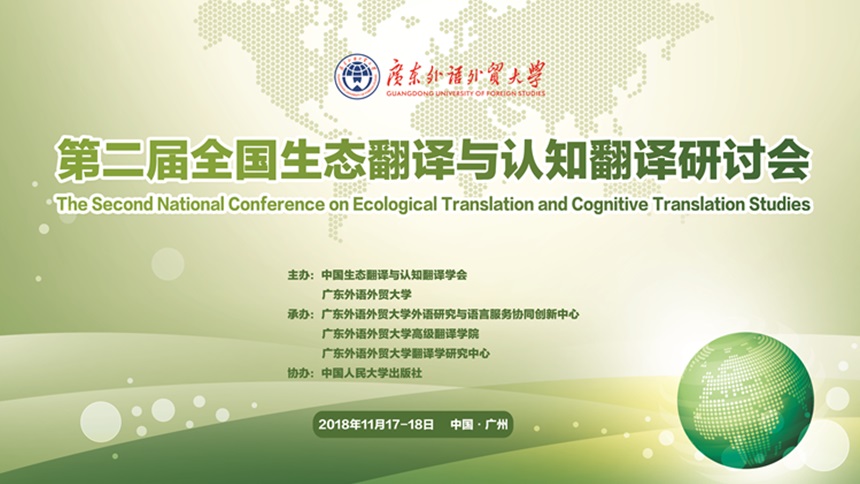译者工作台的生态环境:以职业为导向的翻译技术教学模式-莫爱屏
人工智能时代口译技术应用研究
王华树 | 国内首部聚焦口译技术应用和教学的著作
新书推荐
口笔译教育与评价国际论坛 二号公告
在厦门大学百年校庆之际,邀您齐聚厦门、共襄盛举
论坛推荐

译者工作台的生态环境:以职业为导向的翻译技术教学模式-莫爱屏
译者工作台的生态系统—以职业为导向的翻译技术教学模式
The Ecosystem of Translator Workstation–A Profession-oriented Model on the Teaching of Translation Technology
莫爱屏 广东外语外贸大学
自翻译硕士专业学位(简称 MTI)于 2007 年在中国设立以来,目前国内已有 206 所高等院校开设了 MTI 专业。该专业旨在培养高水平的且须具备使用电子工具和资源能力的职业译者,然而这一技能在翻译教学中尚未受到足够的重视。本文旨在从社会建构主义视角为 MTI 学生构建一个理想的学习环境,从传统的课堂教学转向职业译者工作的真实环境,并探究这种教学模式的可行性和有效性。本研究主要关注:
1)如何协调各种主客观因素以构建一个有利于学习的理想环境?
2)该环境在何种程度上有助于 MTI 学生学习电子工具?
3)如何在两年的教学时间里帮助缩短学生译者和职业译者在工具使用能力上的差距?本文探究译者工作台外部环境各成分之间的互动关系,提出名为“译者工作台的生态系统” 的理想模式,旨在让学生在与未来工作场景相似的环境中更好地学习电子工具。本研究认为,针对特定的教学内容,职业工作场景相对于传统课堂教学有更大的优势,此类研究对目前中国译者教育有较大的启示。
Ever since the program—Master of Translation and Interpreting (henceforth MTI) was approved in 2007, there are already 206 higher learning institutions running such a program in China, aiming at training professional translators with advanced translation competence. Part of this competence is the ability to use the electronic tools and resources, which has not received adequate scholarly attention in the field of translation studies. The objective of this research is to construct an ideal learning environment for the MTI students from a social constructivist perspective by exploring the possibility and benefit of bringing the students out of the traditional classroom teaching into the authentic environment wherein professional translators use electronic tools on a daily basis. This research addresses the following issues:
1) What constitutes an ideal environment therein its various components interact to facilitate the student’s learning?
2) In what way does such an environment assist the MTI students to learn to use the electronic tools?
3) How can the gap between the student translator and the professional translator be bridged in terms of the skills to use the electronic tools in a 2-year training program? In response to these questions, this research explores the interaction among the various components of the external environment of the translator workstation. It proposes an ideal learning environment metaphorically referred to as “the ecosystem of translator workstation”, which aims to enable the MTI students to learn to use the electronic tools in an environment similar to their future workplace. Such a research has great implications for translator education in present-day China by revealing what is best taught or trained in the workplace rather than the traditional classroom setting.
专家简介:
莫爱屏,广东外语外贸大学翻译学研究中心主任(2011–)、高级翻译学院教授(2005–)、博导,先后求学于衡阳师范学院(1978.10-1981.07)、中南大学(硕士)、新加坡南洋理工大学(英语教育硕士文凭)、广东外语外贸大学(博士)、英国剑桥大学等。中国翻译协会专家会员,中国逻辑学会常务理事、中国逻辑学会语用学专业委员会常务理事、秘书长,广东外国语言学会常务理事、副秘书长等、国家社科基金项目成果通讯鉴定专家等。主要研究方向:翻译学、语用学、文化外译等。主要成果:主持或参与国家级、省部级等项目多项;在国内外主要外语类核心期刊 Babel、Perspectives、《外语教学与研究》、《现代外语》、《中国翻译》、《外语教学》、《外语研究》、《外语外语教学》、《中国外语》、《外语学刊》、《解放军外国语学院学报》、《翻译季刊》(香港)等发表论文数篇。
相关推荐
★★★★★ 5/5






